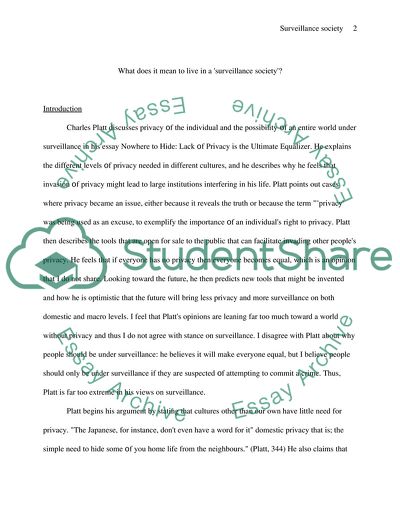Cite this document
(What Does It Mean to Live in a Surveillance Society Assignment, n.d.)
What Does It Mean to Live in a Surveillance Society Assignment. https://studentshare.org/sociology/1713095-what-does-it-mean-to-live-in-a-surveillance-society
What Does It Mean to Live in a Surveillance Society Assignment. https://studentshare.org/sociology/1713095-what-does-it-mean-to-live-in-a-surveillance-society
(What Does It Mean to Live in a Surveillance Society Assignment)
What Does It Mean to Live in a Surveillance Society Assignment. https://studentshare.org/sociology/1713095-what-does-it-mean-to-live-in-a-surveillance-society.
What Does It Mean to Live in a Surveillance Society Assignment. https://studentshare.org/sociology/1713095-what-does-it-mean-to-live-in-a-surveillance-society.
“What Does It Mean to Live in a Surveillance Society Assignment”. https://studentshare.org/sociology/1713095-what-does-it-mean-to-live-in-a-surveillance-society.


